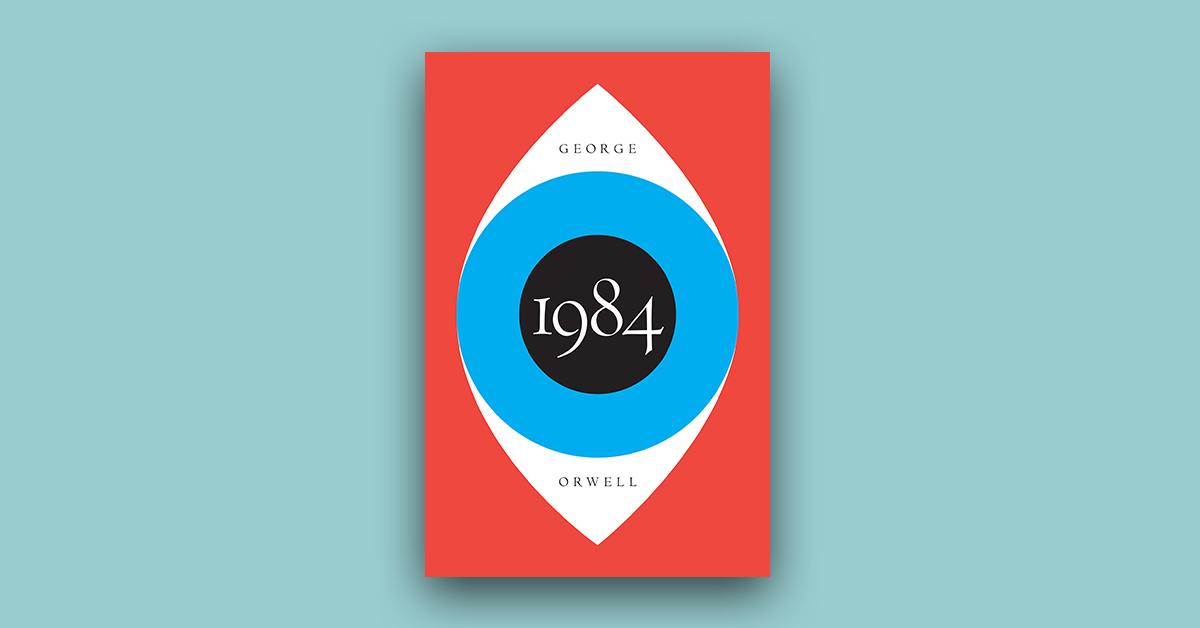Physical Address
304 North Cardinal St.
Dorchester Center, MA 02124
Physical Address
304 North Cardinal St.
Dorchester Center, MA 02124

The Best and Latest in Conservative Thought

George Orwell would most certainly have never called himself a Conservative, but his anti-totalitarian works speak for themselves. His dystopian novel, “1984” not only criticizes the evils of Communism and socialism but gave birth to an entire way of understanding the Left, their tactics of control and a category of terms to describe the way they think and behave. Since the book’s publication it has provided Conservatives with the ability to call out the Left on their hypocrisy and tyranny, referencing their words and actions as being like those of the government in 1984. Orwell even gave humanity a word for this this: Orwellian.
Included in his lexicon are words commonly used to critique big government and those who wish to control society through language, including Big Brother, the Thought Police, Newspeak, doublethink, proles, unperson and thoughtcrime.
He may have described himself as a democratic socialist, but Orwell’s finest works were a gift to the Right. He clearly stated that “Every line of serious work I have written since 1936 has been written, directly or indirectly, against totalitarianism and for democratic socialism as I understand it.” And on the topic of socialism itself, Orwell admits that its not a philosophy he espoused but more one that found him as he searched for a method to defend the poor. “I became pro-Socialist more out of disgust with the way the poorer section of the industrial workers were oppressed and neglected than out of any theoretical admiration for a planned society.” In that sense, Orwell, like so many others, confuse empathy with socialism.
Orwell, who’s legal name is Eric Arther Blair, wrote nine works as well as hundreds of essays. His early works criticized everything from colonialism to middle-class puritanism, but unlike most authors who peak early and ride the wave, his best works came at the end of his career: “1984” and “Animal Farm.”
The latter of these two is a clear allegory about the Russian revolution and its terrors. More broadly, however, it is an attack on all socialist principles. In fact, Orwell said that collectivist government, “gives to a tyrannical minority such powers as the Spanish Inquisitors never dreamt of.”
A master of words, Orwell understood their power and was a vocal proponent of clear speech. As is clear in “1984” it’s also obvious the extent to which he would have opposed the twisting of words the Left does today. He was also a vocal proponent of free speech, to which he said that, “If liberty means anything at all, it means the right to tell people what they do not want to hear.”
Orwell, in particular his final two books, should be ready not just by Conservatives but everyone. It is shocking how much of the horror he predicted in “1984” exists today.
“1984” was an easy choice for our list of the Best Conservative Books.
Down and Out in Paris and London (1933)
Burmese Days (1934)
A Clergyman’s Daughter (1935)
Keep the Aspidistra Flying (1936)
The Road to Wigan Pier (1937)
Homage to Catalonia (1938)
Coming Up for Air (1939)
Animal Farm (1945)
Nineteen Eighty-Four (1949)
Undoubtedly “1984” is Orwell’s most famous work. While “Animal Farm” tells a clear allegory about the evils of the Russian Revolution, it’s narrow in focus, while “1984” tackles totalitarianism in all its forms. “Animal Farm” is more retrospective while “1984” is terrifyingly prophetic and has shaped the very language that we use to discuss big government. Regardless of numbers of books sold, “1984” has had an untold cultural impact on the world we live in today.